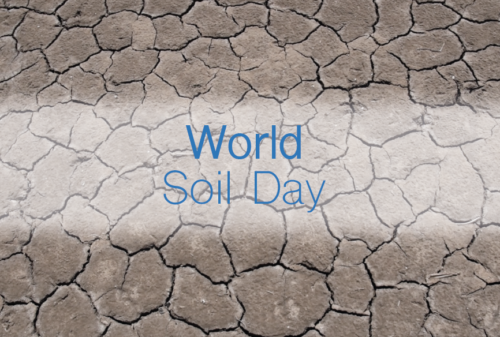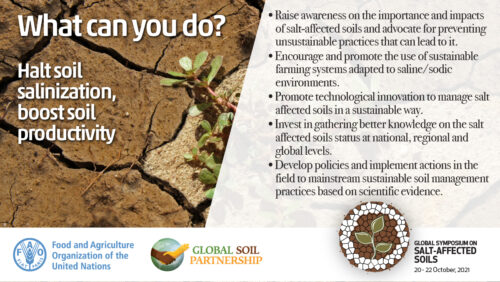By Hannah Sweetnam, Design and Media Coordinator

Held on December 5th, World Soil Day raises awareness for the importance of healthy soil with this years campaign: Halt soil salinisation, boost soil productivity.
Recommended first by the Union of Soil Sciences (IUSS) in 2002 World Soil day was supported by the Global soil partnership, the King of Thailand and the United Nations Food and Agricultural Organisation (FAO). After being endorsed by the FAO conference in 2013, the UN General Assembly then designated December 5, 2014 as the first official World Soil Day. The importance of the date links back to one of its first advocates, the late King of Thailand H.M. King Bhumibol Adulyadej, and so World Soil Day would now fall on his birthday.
World Soil Day aims to portray how important it is for us to manage soil resources sustainably and encourages efforts to improve soil health. Soil issues, mainly salinisation and degradation, are said to be the biggest threats to food security and agricultural production in arid and semi-arid regions.

Salinisation, which we’ve seen in a lot of our project in Africa, leads not only to soil erosion but negatively affects the biodiversity and water quality of a region. Salt affected soil is also less likely to act as a natural buffer against pollutants. Regular plants suffer because the presence of salt means they can’t absorb water easily.
Through our projects, we aim to regenerate soils wether its in the Govan docks where the soil has years of heavy metal pollutants present or in Ghana where we can see the impact of saline soils on food security and erosion. Halophytes are a great natural resource in that they are not only salt tolerant but they thrive on the presence of salt so the potential to utilise these plants in remediating saline soils is huge.